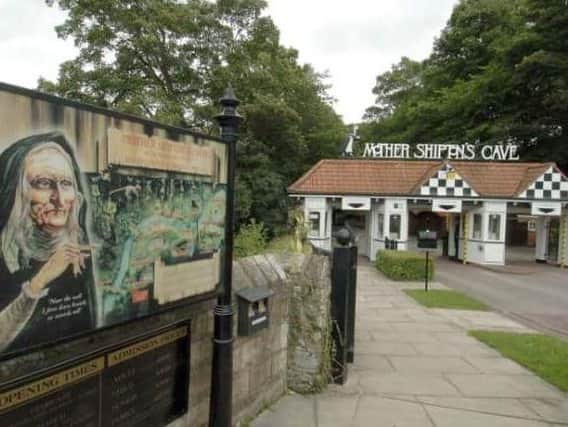Mother Shipton: The legend of Yorkshire's famous prophetess


With its rugged landscape, hidden valleys and windswept hills, Yorkshire has long been famed for its mysterious countryside – and some of its inhabitants have proved to be equally curious.
It may be the place that inspired the likes of Wuthering Heights and The Hobbit, but there are many tall tales that have emerged from the region which may have a little more truth to them.
Advertisement
Hide AdAdvertisement
Hide AdPerhaps the most famous local legend is that of Mother Shipton.


Who is Mother Shipton?
Born as Ursula Sontheil in 1488, Mother Shipton was an English soothsayer and prophetess who lived in Knaresborough and York during the late 15th and early 16th centuries.
While little is known about her parents, legend has it she was born during a violent thunderstorm in a cave on the banks of the River Nidd.
Her mother, Agatha, was just 15 years old when she gave birth and having no friends or family to support her, she raised her daughter alone in the cave for two years before giving her up to a local family.
Advertisement
Hide AdAdvertisement
Hide AdUrsula grew up in Knaresborough but her upbringing was far from easy.
Said to have a large, crooked nose, hunched back and twisted legs, her witch-like appearance attracted taunts and teasing from locals, eventually forcing her to seek solace on her own around the cave where she was born.
There she reportedly studied the forest, learning how to make remedies an potions with the flowers and herbs, and later discovered she had a gift for predicting the future.
The prophecies Word of Ursula’s abilities quickly spread – far beyond the local area – and she went on to make a living telling people’s fortunes, adopting the name Mother Shipton in her older age.
Advertisement
Hide AdAdvertisement
Hide AdWith age she is said to have grown in both confidence and power, and she soon became widely known and feared for her ability to prophesise the future.
Among her many predictions, she is believed to have foretold the Black Death, the Great Fire of London, the defeat of the Spanish Armada and the end of the world.
She is even thought to have predicted the invention of the internet, stating: “Around the world, men’s thoughts will fly. Quick as the twinkling of an eye.”
Her predictions rightly startled people with their accuracy and at the height of witch-fever in the 17th century, she was hailed as one of England’s most notorious witches.
Advertisement
Hide AdAdvertisement
Hide AdHer prophecies have been recounted in a number of published work’s since her death and curious locals and tourists continue to flock to the supposed place of her birth in Knaresborough, where visitors can see the cave and the neighbouring Petrifying Well.
Other local legends
As well as the mystical witch-like figure of Mother Shipton, there are rumours of many strange inhabitants dwelling in Yorkshire over the years.
Perhaps one of the most unusual (and most unlikely) is whisperings of so-called hobgoblins living in the North York Moors.
Legend has it that every dale had its own hobgoblin, some of whom were helpful and others mischievous.
Advertisement
Hide AdAdvertisement
Hide AdThey were said to be particularly attached to farmers and families, and for a jug of fresh cream would help out with farm work and household chores while people slept.
They would supposedly get upset if spied on or if given items of clothing, preferring to be compensated for their work with food; although if not rewarded, they could become bad tempered and bring bad luck.